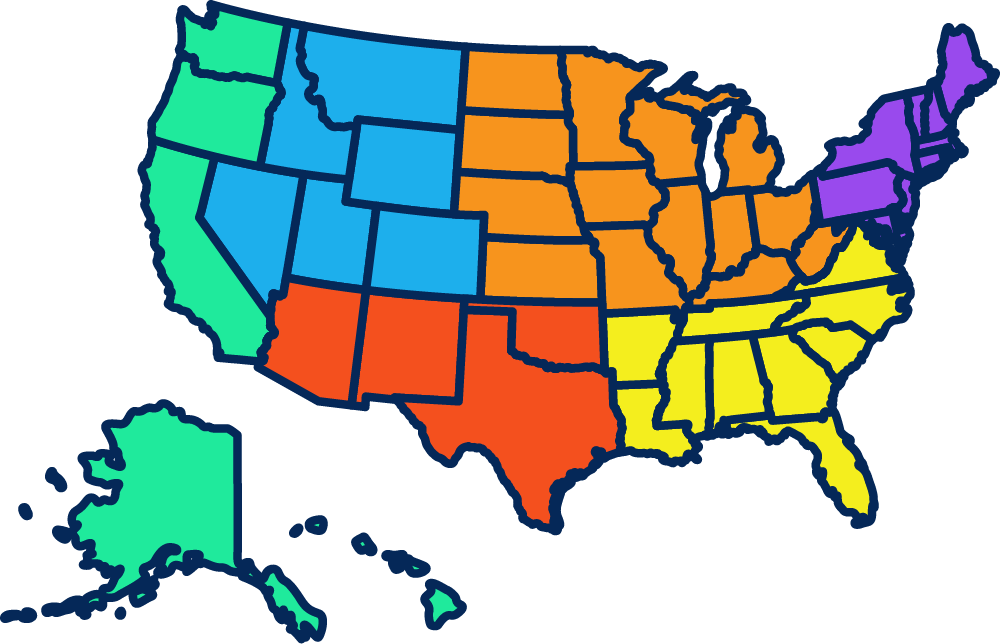GOT QUESTIONS?
-
Radiostics collaborates with Academic Partners in the United States to provide access to a diverse range of multimodal medical data tailored to your project needs, including:
EMR Data: Patient visits, clinical notes, orders, and billing information.
Demographics: Age, sex, race, ethnicity, geographic location, and BMI.
Reports: Radiology, pathology, and cardiology reports.
Medications: Details on prescribed medications, including dosage and administration routes.
Laboratory Data: Bloodwork, urinalysis, and biomarker analyses.
Pathology Results: High-resolution digital pathology slides and biopsy results.
Genetic Data: Genomic sequencing, genetic mutations, and biomarker data.
Medical Codes: ICD-10 and CPT codes for diagnoses and procedures.
Patient Outcomes: Survival rates, treatment responses, and cause of death.
Imaging Data: De-identified X-ray, CT, MRI, PET, Ultrasound, and Digital Pathology images.
-
Yes. Our Academic Partners have access to the latest imaging technologies and techniques in radiology, pathology, and cardiology. The images from these start-of-the-art scanners can be de-identified and securely transferred to our Industry Partners.
-
Our Academic Partners search the electronic medical records and informatics system to identify the ideal datasets. We frequently conduct preliminary searches as part of our validation process. We standardize the process across the different Academic Partners. Radiostics provides technology to de-identify and transfer the data while maintaining key temporal relationships.
-
Yes. Our Academic Partners are experts at extracting complex patient outcome data from the electronic medical records. This often includes specific clinical events (e.g. time to progression, progression-free survival, disease-specific survival, and overall survival).
-
Dataset delivery timelines vary by complexity. Simple datasets are typically delivered within 30 days, while complex multimodal datasets may require 60–90 days to ensure quality and customization."
-
Radiostics does not sell patient datasets. Our pricing reflects the effort required for research services, including data curation, de-identification, storage, and transfer, which are customized to project complexity and scale.
-
Radiostics employs state-of-the-art de-identification techniques and complies with HIPAA and other global privacy regulations. All datasets undergo thorough quality checks to ensure compliance and security during transfer and storage.
-
Radiostics is also a Clinical Research Organization (CRO), we have extensive experience with FDA clearance of AI in imaging solutions. We assist with AI algorithm and software development, image annotation, multi-reader validation studies, biostatistics, FDA consultation and application preparation, and establishment of a quality management system (QMS).
-
Begin by contacting us with your project requirements. We’ll guide you through defining your needs, collaborating on data selection and preparation, and delivering curated datasets tailored to your goals.
GOT QUESTIONS?
-
Radiostics provides significant research funding (details below), cutting-edge de-identification tools, and opportunities to collaborate on multi-institutional projects. Participation supports advancing AI innovation while ensuring compliance with ethical and legal standards.
-
We are expanding across the U.S. to adequately represent a wide range of patient populations and clinical practices in our medical image datasets. Academic Partners include academic medical centers with research labs and personnel that have an interest in industry collaborations and multi-institutional AI research.
-
AI MINER is the Artificial Intelligence Mult-Institutional Network for Ethical Research. The primary investigator of the AI MINER study is Andrew Smith MD PhD, Chair of Radiology at St. Jude Children's Research Hospital. St. Jude is the coordinating center of the study.
In order to participate, a site investigator at your center submits the AI MINER protocol to the IRB, which is a minimal risk multi-institutional research study that will likely be classified as exempt or expedited. The site investigator signs a research agreement with Radiostic to share data with Industry Partners. Your information technology (IT) team reviews the iCore sofware, installation plans, and manual. Radiostics and St. Jude personnel will answer all security questions.
As an Academic Partner, you can propose or participate in multi-institutional AI research projects.
Learn More about AI MINER HERE
-
Radiostics ensures zero cost to Academic Partners. We provide $2M research award, free image and text de-identification software, and cover image transfer and storage fees. Payments are processed after funds are received from Industry Partners.
-
Investigators will utilize existing software to search radiology reports and the EMR for cohorts.
As an Academic Partner, you will receive free access to iCore, custom software compiled as a macOS application for easy accessibility and installation. iCore is designed to operate on standard iMac systems, providing a cost-effective and user-friendly solution. Minimal setup is required to establish connections with radiology PACS for bulk image retrieval.
Once images are retrieved locally, iCore performs the following:
Bulk Image De-identification: Built on the Clinical Trial Processor from the RSNA, ensuring reliable de-identification.
Text De-identification: Enhanced by the National Library of Medicine scrubber and large language models to ensure thorough removal of protected health information (PHI).
De-identification includes replacing patient names, medical record numbers, and academic medical center identifiers with coded labels. All dates in images and text are systematically shifted to maintain longitudinal relationships.
Quality Control: Investigators can review and validate de-identified images using Horos, a free medical image viewer.
Data Security: All de-identified data is securely transferred and stored on a compliant cloud-based system, such as Microsoft Azure.
-
In the United States, each medical center owns the images, reports, and multimodal data. It is legal and ethical to share these under an IRB-approved research study. Radiostics leverages the Artificial Intelligence Multi-Institutional Network for Ethical Research (AI MINER), an IRB-approved minimal-risk research study. This study qualifies for a HIPAA waiver and waiver of consent, and the images, reports, and multimodal data will be de-identified with a coded identifier applied.
-
Radiostics does not sell patient datasets. Our pricing reflects the effort required for research services, including data curation, de-identification, storage, and transfer, which are customized to project complexity and scale.
-
The following PHI will remain with the Academic Partners and will not be entered into the data repository:
Names (Full or last name and initial)
All geographical identifiers smaller than a state
Dates (other than year) directly related to an individual
Phone Numbers
Fax numbers
Email addresses
Social Security numbers
Medical record numbers
Health insurance beneficiary numbers
Account numbers
Certificate/license numbers
Vehicle identifiers (including serial numbers and license plate numbers)
Device identifiers and serial numbers
Web Uniform Resource Locators (URLs)
Internet Protocol (IP) address numbers
Biometric identifiers, including finger, retinal and voice prints
Full face photographic images and any comparable images
Any other unique identifying number, characteristic, or code except the unique coded identifier assigned by the investigator to code the data
-
No. The name of each AMC is removed from the images, reports, and multimodal data as part of the de-identified process. Our de-identification software (iCore) labels each site with a coded identifier that cannot be linked back to the specific AMCs by outside entities.
-
Industry Partners developing AI solutions own their algorithms and products. However, Radiostics ensures equitable agreements that benefit both Academic and Industry Partners.


















